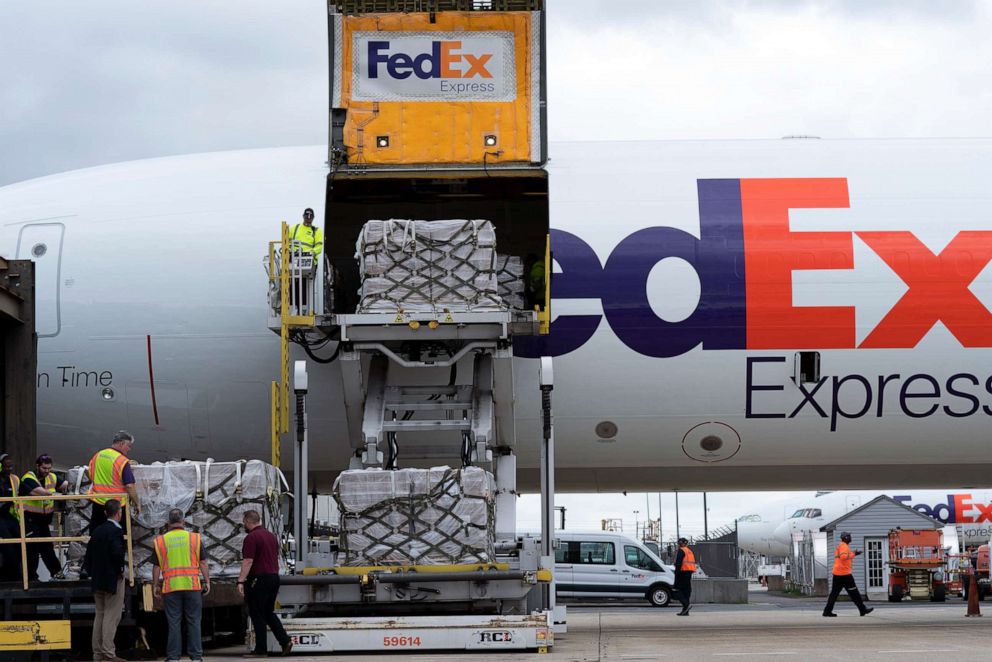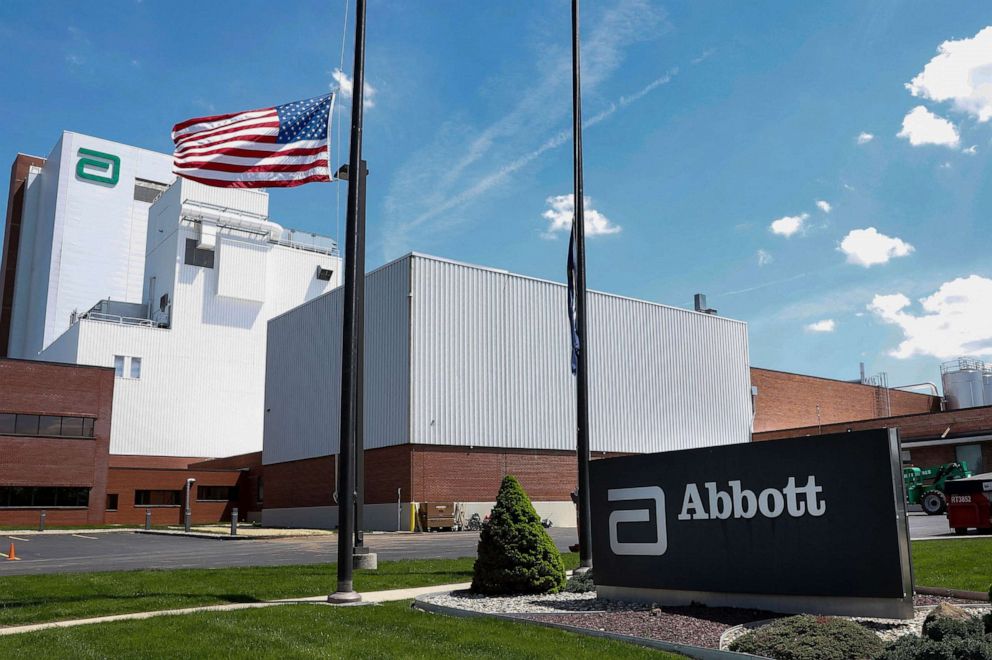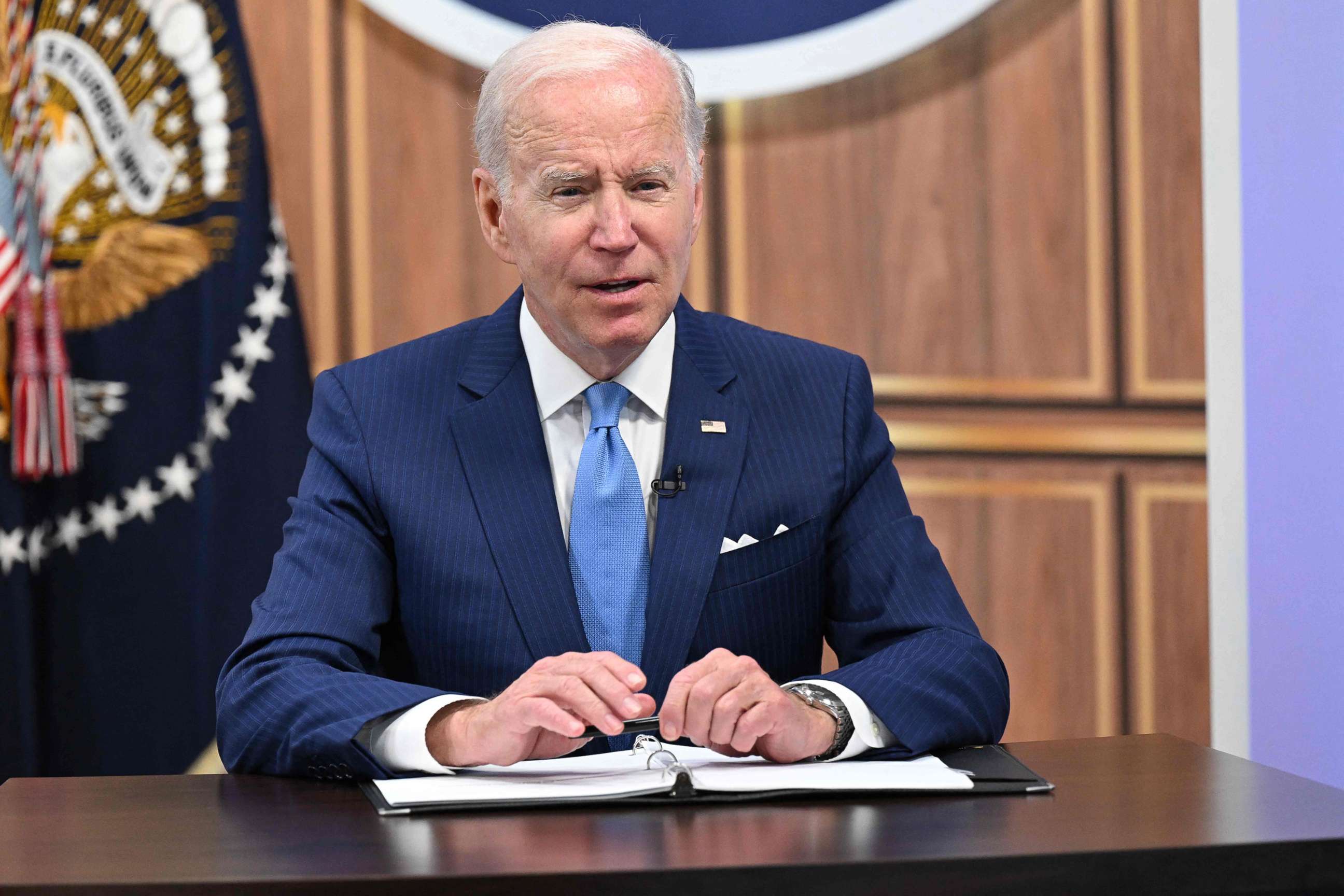Biden admits he didn't foresee impact of Abbott's shutdown on already growing baby formula shortage
"I don’t think anyone anticipated the impact ..." he said. Formula makers did.
A White House event on Wednesday meant to highlight the action President Joe Biden is taking to deal with the nation's baby formula shortage turned into a political problem when he raised new questions about when he realized just how urgent the situation was -- and why he and the administration didn't take stronger action sooner.
Biden, who admitted he didn't find out about the shortage issue until April, asked formula company executives at a virtual roundtable whether they had anticipated just how profound an effect the closing of an Abbott Nutrition plant in February closure would have on America's formula supply -- and if they realized how bad it would get and how quickly.

Spokespeople for two of the five infant formula manufacturers explicitly said they had recognized from the start how huge a problem the formula shortage would eventually become.
"We knew from the very beginning this would be a very serious event," Reckitt's chief executive, Robert Cleveland, said. He said his company had reached out to retail partners like Target and Walmart "immediately" to warn them and to start troubleshooting available inventory to ensure they could get what they had onto shelves.
"The very first thing we did when we heard about the Abbott recall was, we could foresee that this was going to create a tremendous shortage," Perrigo CEO Murray Kessler said.

Their words prompted reporters to ask, as they have for weeks, whether the administration should have acted faster -- something Biden has repeatedly dismissed.
"I don’t think anyone anticipated the impact of the shutdown of one facility, the Abbott facility," he said, responding to their shouted questions. "Once we learned the extent of it ... we kicked everything into gear."
He said he became aware of the issue only in April -- though in mid-February, Abbott had issued a voluntary recall and shuttered its Sturgis, Michigan, plant, citing contamination concerns and ordering a recall.
Since U.S. manufacturers had just told him they had anticipated the impact, reporters asked Biden why he, too, didn't see this coming.
"They did, but I didn't," Biden answered.
Later, at the White House briefing, press secretary Karine Jean-Pierre was pummeled with more questions.
Asked repeatedly when the White House was informed and when it was decided Biden himself should get involved, Jean-Pierre said, "I don’t have the timeline on that."
"All I can tell you, as a whole of government approach, we have been working on this since the recall in February," she said.
ABC News Senior White House Correspondent Mary Bruce asked if Jean-Pierre was saying the administration's response would have been exactly the same if the president had known sooner.
"I am saying that we have been working on this. We, as a whole of government approach, have been working on this since the recall, which was in February," she repeated. "That is what I'm saying. I'm talking about internally, not just the agencies, not just FDA, USDA, but also we have been working on this for months, for months. And we've taken this incredibly seriously."

The Abbott Nutrition plant in Michigan is set to resume operations on Saturday, the FDA and the company have said, though it will take another six to eight weeks for its plant to ramp back up to full capacity and get its product out to the barren store shelves and families in need.
In the meantime, the administration says it has been working feverishly to bring formula in from abroad amid vociferous complaints from desperate parents -- as well as political heat from both Democrats and Republicans.
"We're going to continue to pull every lever that we have," Surgeon General Vivek Murthy said Wednesday.
Earlier Wednesday, in what was intended to highlight a positive development ahead of Biden's event, the administration announced several additional planeloads of formula are set to get airfreighted in from overseas as part of the president's "Operation Fly Formula."
A third round of baby formula shipments is set to make its way to U.S. shores by way of United Airlines beginning next Thursday, administration officials announced.
It will come from U.K. formula manufacturer Kendal Nutricare and contain more than 300,000 pounds of its Kendamil infant formula -- the equivalent of roughly 3.7 million 8-ounce bottles of formula.
The shipments are expected to be flown from Heathrow Airport to "multiple airports" across the U.S. over the course of "a three-week period," beginning June 9.
They will include the equivalent of approx. 3.2 million 8-ounce bottles of Kendamil Classic Stage 1, made with full cream whole British cow’s milk for babies beginning at birth, and the equivalent of 540,000 8-ounce bottles of Kendamil Organic, made with organic whole milk.
The formula will be distributed and become available for purchase "at selected U.S. retailers nationwide, as well as online," the administration said.
This first shipment will be available at Target stores across the country "in the coming weeks," the administration said, a key detail for parents who have been combing grocery shelves and news bulletins for specifics on where and when they might find what they need during the ongoing shortage.
Besides being the largest shipments to date, the formula will get put on store shelves and will be available online -- not just at hospitals or from doctors' offices as with shipments from earlier flights.
A fourth round will bring in 380,000 pounds of Bubs Australia formula, the equivalent of 4.6 million 8-ounce bottles, and will arrive on two flights next week, facilitated by the Department of Health and Human Services, officials said.
The shipments on the two flights from Melbourne to Pennsylvania and California will be on June 9 and June 11, respectively.
Additional deliveries from Bubs will be announced "in the coming days," the White House said.
ABC News' Mary Bruce and Karen Travers contributed to this report.




